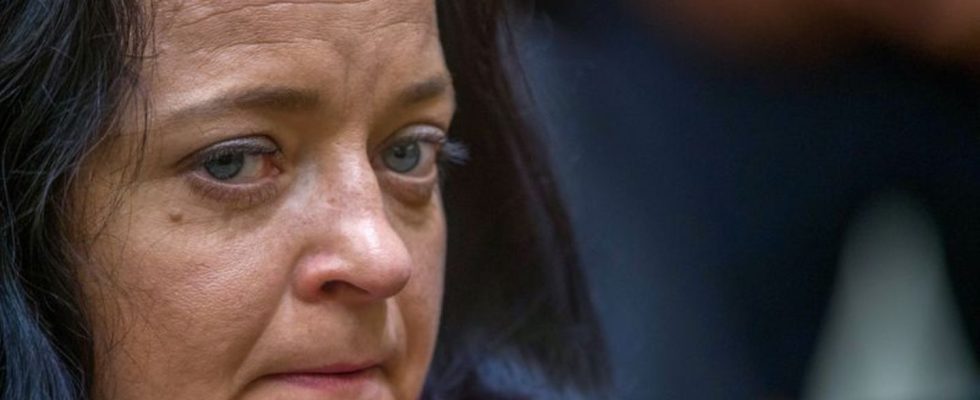NSU
Lawyer: Zschäpe rejected from extremist exit program
Beate Zschäpe has been in prison for around twelve years. photo
© Peter Kneffel/dpa-Pool/dpa
Probably Germany’s best-known right-wing extremist, Beate Zschäpe, has applied to be included in an extremist exit program – and, according to her lawyer, has already received an answer.
The Saxony dropout program has an application for membership from the convicted right-wing terrorist According to her lawyer, Beate Zschäpe was rejected. “We have contacted the Free State of Saxony’s exit program,” said lawyer Mathias Grasel to the German Press Agency in Munich. However, the request for admission was “rejected by the dropout program”.
The reason, according to Grasel: “It’s still too early for that.” There was no information about this from the dropout program. “We do not provide any information about specific case inquiries or cases from the Saxony dropout program,” said the managing director of the State Prevention Council, Sven Forkert, when asked by the dpa.
The program supports “people who are in the sphere of influence of extremist groups or contexts, want to break away from them and need support to do so,” it says on the homepage. “The aim is to enable those who have dropped out to have a fresh start in our society.”
It is therefore intended to appeal to people “who, with their previous activities, have consciously rejected the democratic foundations of our society and considered militancy and violence against others and state institutions to be legitimate means – but now seem ready to leave.”
NSU and prison
In 2018, after more than five years of trial, Zschäpe was sentenced to life imprisonment as an accomplice in the NSU murder series. The Munich Higher Regional Court also noted the particular gravity of the guilt. This means that early release after 15 years is virtually impossible.
Zschäpe has been in prison – including pre-trial detention – for around twelve years. According to Grasel, it will be 15 years on November 8, 2026. Until then, a so-called minimum period of serving must be determined, which states how long Zschäpe must remain in prison afterwards. According to Grasel, her application for admission was also rejected because the end of her detention was “not yet foreseeable”.
The “National Socialist Underground” (NSU) was a terrorist cell consisting of Zschäpe, Uwe Mundlos and Uwe Böhnhardt, which for years from 2000 onwards carried out ten murders undetected throughout Germany, five of them in Bavaria. Their victims were nine traders of Turkish and Greek origin and a German policewoman. Mundlos and Böhnhardt also carried out two bomb attacks in Cologne, injuring dozens of people. The two killed themselves in 2011 to avoid arrest – only then was the NSU exposed.
Before an investigative committee of the Bavarian state parliament, Zschäpe admitted complicity in the series of murders more clearly than ever before. “I am complicit in the murders,” said Zschäpe, according to the transcript. “Even though I didn’t pull the trigger, I tolerated them.” If she had turned herself in in time, “the series would have been over,” said Zschäpe. “I didn’t do it, and for that I’m just as guilty as if I pulled the trigger.”
Zschäpe was questioned by Bavarian state parliament members for a day in May in the Chemnitz correctional facility. It was the first time she had spoken out since the end of the trial and the first time ever that Zschäpe answered questions directly.
Some observers considered her statements to be a tactical maneuver: to achieve a relaxation in the prison system and participation in an exit program at some point if she shows remorse.

